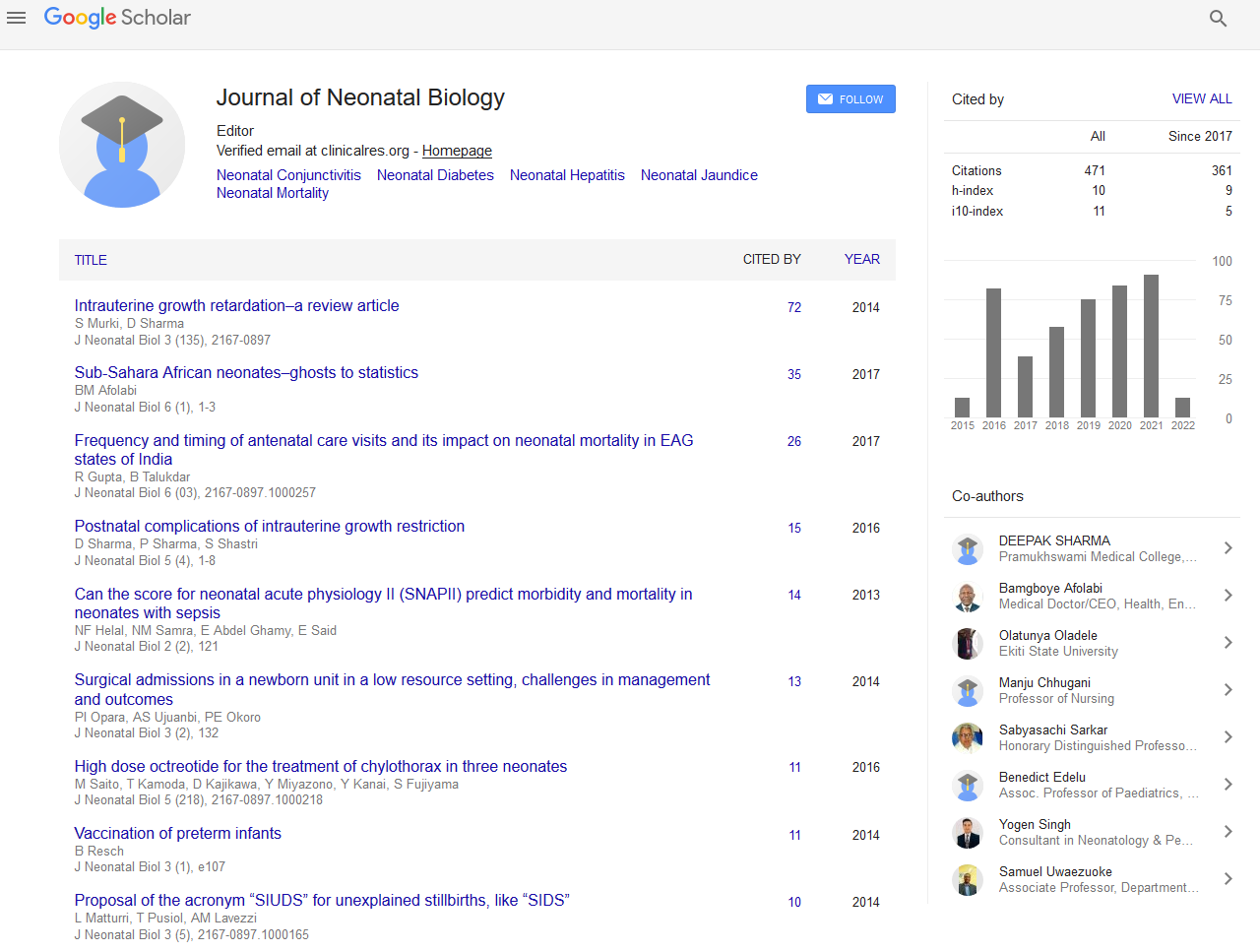PMC/PubMed Indexed Articles
Indexed In
- Genamics JournalSeek
- RefSeek
- Hamdard University
- EBSCO A-Z
- OCLC- WorldCat
- Publons
- Geneva Foundation for Medical Education and Research
- Euro Pub
- Google Scholar
Useful Links
Share This Page
Journal Flyer

Open Access Journals
- Agri and Aquaculture
- Biochemistry
- Bioinformatics & Systems Biology
- Business & Management
- Chemistry
- Clinical Sciences
- Engineering
- Food & Nutrition
- General Science
- Genetics & Molecular Biology
- Immunology & Microbiology
- Medical Sciences
- Neuroscience & Psychology
- Nursing & Health Care
- Pharmaceutical Sciences
Abstract
Use of Ambroxol and Treatment of Klebsiella Ozaenae in Extremely Low Birth Weight Preterm: Case Report and Literature Review
Liu Yonglin, Qiao Yanmei, Yun Zhongming, Zhang Xiaopu and Bilal Haider Shamsi
Introduction: Respiratory distress syndrome (RDS) is the most common respiratory complication occurring in preterm newborns due to deficiency of endogenous pulmonary surfactant. Ambroxol, is a promoter of fetal lung maturity and indicated as secretolytic therapy in bronchopulmonary diseases. Klebsiella ozaenae, whose antibiotic susceptibility data is limited, is associated with ozena; a primary atrophic rhinitis (AR), RTIs, cerebral abscess, meningitis, UTIs, and is one of the leading cause of (ICU) acquired pneumonia. This case study reports the use of post-natal intravenous amroxol to treat RDS, and use of cefoperazone sulbactam to treat Klebsiella ozaenae and Pseudomonas aeruginosa.
Case Presentation: A Chinese preterm, extremely low birth weight female (birth weight was 750 grams) was delivered by emergency caesarian section to a pregnancy-induced hypertensive G2P2 mother at 27 weeks’ gestational age and was admitted in the pediatric ward because of severe dyspnoea with grunting respiration, tachypnoea, cyanosis and crackles in the lung fields. A working diagnosis of RDS was made and she was placed in incubator and neonatal continuous positive airway pressure (NCPAP) was applied immediately. She was managed with ambroxol for RDS and cefoperazone sulbactam for Klebsiella ozaenae and Pseudomonas aeruginosa bacteria and was successfully treated by 3 days’ intravenous gamma globulin therapy and 10 days’ antibiotics administration. On 67th day of hospitalization, baby was discharged with a body weight of more than 2100 grams.
Conclusions: The early application of NCPAP and ambroxol reduced the severity of this disease in preterm neonate and improved the clinical course of RDS. The combination of cefoperazone and sulbactam is effective against both of K. ozaenae and Pseudomonas aeruginosa bacteria.


